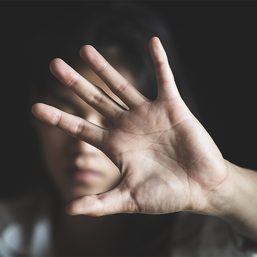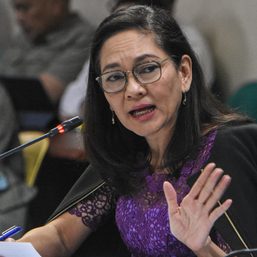SUMMARY
This is AI generated summarization, which may have errors. For context, always refer to the full article.
![[OPINION] Care improves the power of gender-based violence survivors](https://www.rappler.com/tachyon/2022/12/TL-Care-gender-based-violence-December-3-2022.jpg)
Everyone experiences gender and sexuality in uniquely personal ways, and for many, these parts of our identities cause us shame, discrimination, subordination, exploitation, and abuse.
It is worth noting that gender differences and gender inequality are learned. These are learned when children are given categories of “boy” or “girl” from even before they are born, and when these categories are reinforced across their formative years. Many families and communities also teach “appropriate” and “acceptable” ways of being masculine or feminine to boys and girls, respectively. The former are taught to be strong and aggressive and are told that bravery means bearing the pain while holding tears back; the latter are taught to be tolerant and obedient, and are raised to care for others, even to the point of sacrificing themselves.
At an early age, all children are taught that exploring or expressing sexual desire is wrong, the different responses to violators of this rule betray more unequal treatment. Boys can be sexual because defying rules is exactly what boys do; girls are taught that they will only be respected if they hide or deny their desires. Violation of gender norms are met with penalties like shame, blame, and violence. These unwritten rules govern people’s behaviors and attitudes, and it leaves many with unhealthy and unsafe relationships with their bodies, their identities, and the people around them.
Even before the pandemic, one in three women experiences sexual violence globally, according to the World Health Organization (WHO). In the Philippines, the National Demographic and Health Survey in 2017 found that one in five women experience physical and sexual violence; 41% do not at all seek help, over 20% share their experiences with people they trust, and only a little over 30% seek help from authorities to stop the violence.
During the COVID-19 pandemic, the world saw an increase in gender-based violence. The Philippine Commission on Women reported that they received triple the usual amount of cases during the lockdowns.
Gender and social inequality persist because we are made to believe that incidences of gender-based violence and gender inequality are personal problems that must be addressed privately, or at the individual level. Public health care is severely limited, and people are expected to pay out of pocket for health services that will determine the extent of and provide relief for their physical and psychological pain. Legal processes require an excessive amount of documentation to “prove” that harm was caused, and courts pit victim-survivors and abusers against each other as if they held equal power, instead of recognizing the unfair relationship of dominance and subordination.
Many people who are in a position to help victim-survivors accept gender power inequality as embedded in the nature of society. Women and queer folk are expected to “know” this, and to “protect” themselves or “prevent” abuses by dressing, speaking, or behaving “appropriately.” Victim-blaming is exactly that belief that people who experience abuse must not have protected themselves enough, or they must have done something to justify the abuse. This is also a very convenient way to excuse abusive behavior. In resolving intimate partner violence and domestic abuse, survivors are also expected to forgive their abusers and maintain good relationships with them. It is no wonder only a few seek help.
Inspite of this considerable injustice, people survive. Lunas Collective, a feminist and inclusive chat service that supports Filipinos experiencing gender-based violence, has learned that people who live through different forms of marginality and abuse manage their very limited resources and opportunities to keep themselves and their loved ones safe.
It is important for survivors and carers to see victim-survivors as people with very limited power instead of being entirely helpless and powerless. By recognizing their limited power, we help survivors grow it. Care is another simple yet significant way to expand this power.
The Lunas Collective Feminist Care method responds to gender-based violence through empathy conversations. Carers are taught to listen, understand, and nurture the agency of survivors, and help people find social support and access to services that will help them achieve their idea of safety, healing and justice. The transformative aspect of Lunas Collective Feminist Care lies in understanding the nuances of power – how people have more or less of it, and how those who have more can use their privilege to amplify the power of those who have less.
In Lunas Collective, volunteers recognize how gender power inequality affects their well-being and their opportunities, some have openly discussed their own survivor stories as their main motivation for sharing the care. Volunteers understand that their life experiences, access to material resources, and their passion for creating more equitable societies are sources of power, and use their power by spending time to listen and chat with survivors whose circumstances may limit their opportunities for safety, justice, and healing. When asked for feedback, survivors describe an “unburdening,” that opening up about their situations and feeling validated and understood all helped them make sense of their complex situations, and figure out strategies for self-care or safety.
It is incredibly liberating the way survivor-centered care sounds so doable. The only thing that stands between the status quo and gender justice is the commitment of people and institutions to learn, practice it, and provide adequate resources. Honestly, there is no reason to say no. – Rappler.com
Sabrina Gacad is the chairperson of the Department of Women and Development Studies at the College of Social Work and Community Development, and a researcher of the University of the Philippines Center for Women and Gender Studies, which is one of the partners of Oxfam Pilipinas in the Sexual Health and Empowerment Project. She is also the founder and director of Lunas Collective, an online helpline for survivors of gender-based violence.
Add a comment
How does this make you feel?

![[OPINION] The myth of the individual narrative in the struggle against sexual violence](https://www.rappler.com/tachyon/2024/02/ispeak-struggle-for-safe-spaces-feb-7-2024.jpg?resize=257%2C257&crop=274px%2C0px%2C720px%2C720px)

![[OPINION] Data is crucial to preventing gender-based violence](https://www.rappler.com/tachyon/2023/11/TL-ogbv-nov-28-2023.jpg?resize=257%2C257&crop=271px%2C0px%2C720px%2C720px)

There are no comments yet. Add your comment to start the conversation.